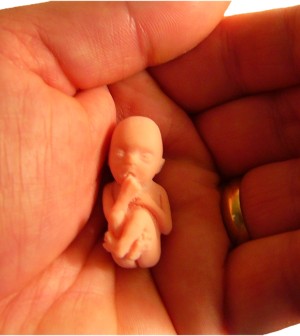- Double Mastectomy May Offer No Survival Benefit to Women With Breast Cancer
- Toxic Lead Found in Cinnamon Product, FDA Says
- Certain Abbott Blood Sugar Monitors May Give Incorrect Readings
- Athletes Can Expect High Ozone, Pollen Counts for Paris Olympics
- Fake Oxycontin Pills Widespread and Potentially Deadly: Report
- Shingles Vaccine Could Lower Dementia Risk
- Your Odds for Accidental Gun Death Rise Greatly in Certain States
- Kids From Poorer Families Less Likely to Survive Cancer
- Tough Workouts Won’t Trigger Cardiac Arrest in Folks With Long QT Syndrome
- At-Home Colon Cancer Test Can Save Lives
Obese Kids Might Have Higher Levels of Stress Hormone


Obese children have elevated levels of a key stress hormone, according to a new study.
Researchers measured levels of cortisol — considered an indicator of stress — in hair samples from 20 obese and 20 normal-weight children, aged 8 to 12. Each group included 15 girls and five boys.
The body produces cortisol when a person experiences stress, and frequent stress can cause cortisol and other stress hormones to accumulate in the blood. Over time, this can lead to serious health problems, according to the authors of the study, which was published online Dec. 18 in the Journal of Clinical Endocrinology & Metabolism.
“We were surprised to find obese children as young as age 8 already had elevated cortisol levels,” study author Dr. Erica van den Akker, of Erasmus MC-Sophia Children’s Hospital in Rotterdam, Netherlands, said in a journal news release.
The obese children had an average cortisol level of 25 pg/mg in their scalp hair, compared with 17 pg/mg for normal-weight children, the researchers said. The levels found in hair reflect cortisol exposure over about one month.
More research is needed to determine the reasons for the study’s findings.
“We do not know whether obese children actually experience more psychological stress or if their bodies handle stress hormones differently,” van den Akker said. “Answering these key questions will improve our understanding of childhood obesity and may change the way we treat it.”
More information
The American Academy of Pediatrics tells parents how to identify a child under stress.
Source: HealthDay
Copyright © 2024 HealthDay. All rights reserved.










